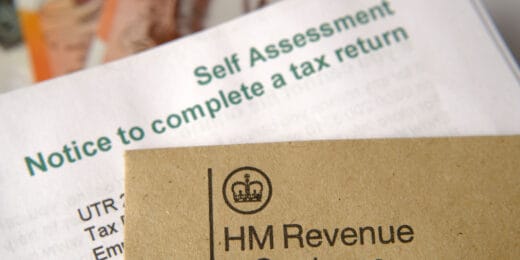Starting your own company is an exciting and rewarding time. However, it can often be financially demanding, with many expenses that can quickly add up before you’ve even launched your business.
In many cases, these expenses will come from your own personal funds. So, one common question is whether or not any of these expenses can be reclaimed.
This article covers what pre-incorporation expenses you can claim and how you can do so. Let’s get started.
Key Takeaways
- You can claim Corporation Tax Relief on qualifying pre-trading expenses incurred up to seven years before starting your business.
- Keep accurate records of all receipts and invoices to support your expense claims and ensure compliance.
- Reclaiming pre-incorporation expenses can be complex, so it’s best to speak to an accountant.
Pre-incorporation expenses you can claim
The initial expenses of setting up a business can sometimes feel like a burden. Still, the good news is that you can claim Corporation Tax Relief on pre-trading expenses, provided you can demonstrate these were legitimate expenses.
What’s more, you can reclaim some expenses incurred up to seven years before the date you started trading.
Some of the typical expenses you can claim include:
- Professional services: including accountancy fees and legal advice related to your business activity, within six months of the start date.
- Domain names and web hosting: related to securing your company’s online presence.
- Computer equipment and office supplies: laptops, PCs, tablets, stationery, postage and more.
- Travel costs include fuel, public transport, and accommodation due to events like client meetings.
- Office overheads: including business premises, phone bills, broadband, and utilities.
- Advertising, marketing, and PR: related to promoting your business.
If you’ve incurred pre-trading expenses before officially registering your company, you’ll have to cover these costs with your own funds, since you can’t set up a business bank account in your company’s name before incorporation.
As soon as your company is set up, you can claim reimbursement for these expenses, avoiding any personal tax liability.
Some important considerations
When it comes to pre-incorporation expenses, there are several important factors and conditions to keep in mind:
- Exclusive business use: To claim an expense, it must be exclusively for business purposes and intended to aid in trading from your company’s start date.
- Time limits for claiming VAT: For goods bought, such as office furniture and IT equipment, you can reclaim the VAT element within four years from the date you start trading, provided you are a VAT registered limited company.
- Costs incurred by the company: Expenses must be paid by the company to be eligible for reclamation. If you initially paid for an expense personally, you can reimburse yourself once the company is set up.
- Item usage: Items claimed must be intended only for the company’s use and not bought initially for private use.
- Second company expenses: If you’re already a registered company and incur costs while setting up another company, you can’t reclaim these costs.
- Company registration cost: The direct cost of the company registration itself is a one-off capital expense and cannot be directly claimed. However, you can reimburse yourself if you personally covered the registration fee.
Pre-incorporation expenses you can’t claim
While you can claim many pre-incorporation expenses back, some costs are not reclaimable and are considered disallowable expenses for Corporation Tax. These include:
- Company registration fees
- Providing entertainment (e.g. dinner) for clients
- Clothing, except any protective wear that is necessary for you to do your job
- Specific types of legal fees
- Fines and penalties
How to reclaim expenses
To claim back these expenses, it’s vital to keep accurate records. Maintain all receipts and invoices as evidence of any expenditure.
These records will be crucial when preparing your annual accounts and tax returns. Without them, you cannot demonstrate the legitimacy of your business expenses and your claim may be rejected.
Once you’ve submitted a claim, you must retain your records for 6 years after the accounting period in which they are reclaimed.
Final thoughts
Reclaiming pre-incorporation expenses can significantly ease the financial strain of starting a company, allowing you to reinvest in your growing business. Always meet the necessary criteria and keep meticulous records to maximise your expense reclamation and comply with tax regulations.
Pre-incorporation expenses can be confusing, and it’s crucial that you correctly understand what costs are tax deductible. Consulting an accountant or tax advisor is strongly recommended for expert advice on navigating the complexities of business expenses. Expert advice can end up saving you valuable time and money.
Leave a comment below, and we will respond. Visit our homepage if you want to register a limited company, where you can check if your company name is available.
Please note that the information provided in this article is for general informational purposes only and does not constitute legal, tax, or professional advice. While our aim is that the content is accurate and up to date, it should not be relied upon as a substitute for tailored advice from qualified professionals. We strongly recommend that you seek independent legal and tax advice specific to your circumstances before acting on any information contained in this article. We accept no responsibility or liability for any loss or damage that may result from your reliance on the information provided in this article. Use of the information contained in this article is entirely at your own risk.










Join The Discussion